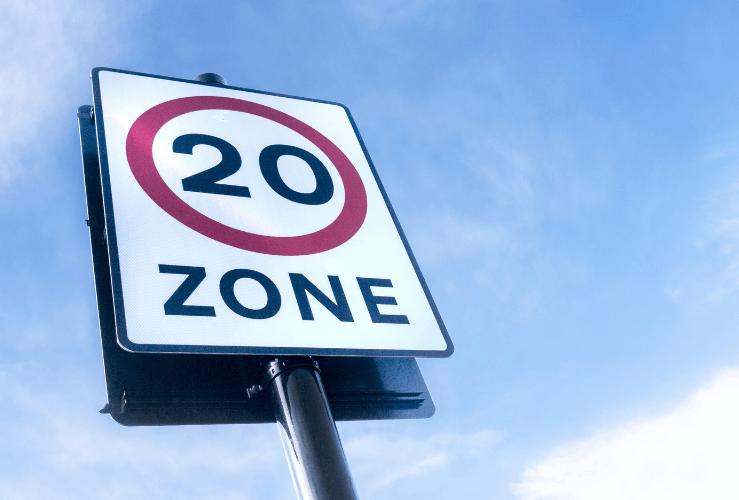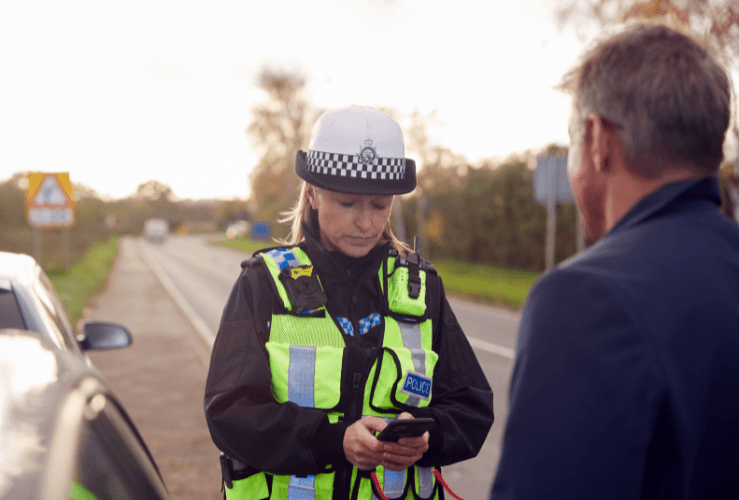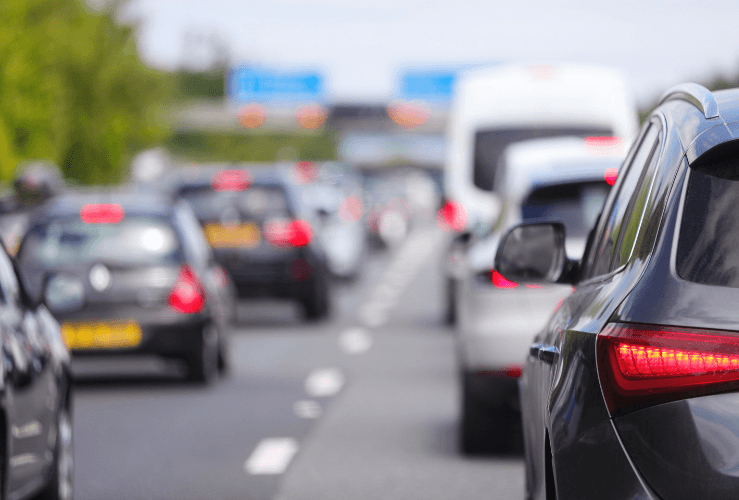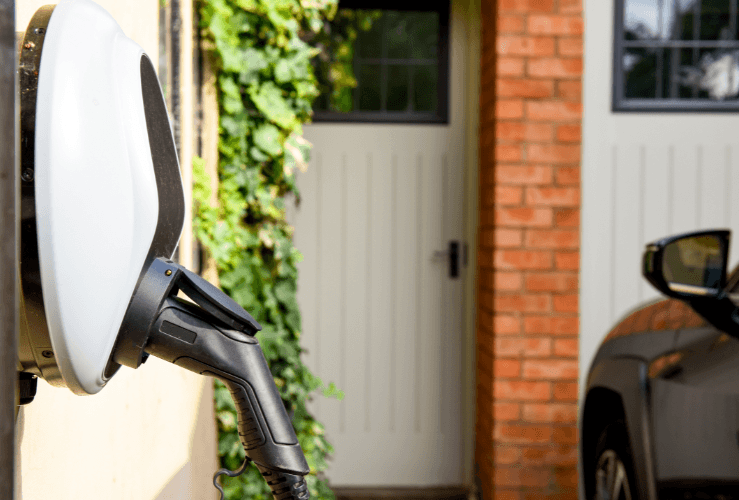A number of new driving laws were introduced in 2022.
Most of the new road rules are focused on making roads safer (particularly for at-risk groups like cyclists and pedestrians); reducing congestion; encouraging EV take-up; and cutting CO2 emissions.
Here are the main new Highway Code/DVLA rules for 2022.
Safety for at-risk groups
Priority status for pedestrians, horse riders and cyclists (Highway Code Update)
One of the key new Highway Code rules aims to make roads safer for at-risk groups:
- Pedestrians, horse riders and cyclists given priority on the road
- Improved priority status for pedestrians crossing (or waiting to cross) the road
- Changes to safe passing speed and distances in relation to cyclists and horse riders
- Cyclists given priority at junctions when moving straight ahead
- Changes designed to capitalise on 'active travel boom'

New 20mph speed limit in some areas - enforced by cameras
A 20mph speed limit has been introduced in certain pedestrianised or otherwise busy areas.
The new limits are being enforced by speed cameras. 1,100 motorists were caught breaking the speed limit within the first 24 hours of operation.
The new zones are now operating in Birmingham, Oxford, Edinburgh, Glasgow, Abergavenny and Severnside - among other locations.
Parking rule changes
Private Parking Code of Practice withdrawn
Earlier in 2022 the government proposed a "Private Parking Code of Practice" which limited parking fines and other measures viewed as somewhat draconian.
However, this code has since been withdrawn.
The proposed code had stipulated:
- 10-minute grace period allowing drivers to return to their car before a fine is issued
- 5 minutes to change their mind about where they were going to park
- Pricing and T&Cs to be clearly displayed
- Prevention of excessive fees/late ticket debt collection
- £50 private parking fee limit (instead of £100).
- £100 fines would only apply to using disabled parking without a Blue Badge

Nationwide pavement parking ban expected
Councils in England and Wales could soon have the power to issue £70 fines for drivers who park on pavements.
Pavement parking in London and some other areas of the UK is already illegal.
A Scottish ban on pavement parking is expected in 2023.
Powers moved away from police and doctors
Minor traffic offences can now be enforced by local councils instead of police
Local councils in England and Wales can now apply for powers to enforce minor traffic offences (like stopping in a cross-hatched area of a junction).
Prior to this rule change, only Cardiff and London councils had the power to enforce minor traffic violations.
Healthcare professional can now determine if people are fit to drive
Previously, only doctors could ascertain if a person was fit and healthy enough to drive.
Under 2022 driving law changes, nurses and other healthcare professionals can use questionnaires to determine if someone can drive.
The move is aimed at making license renewals quicker and reducing GPs’ workload.

Safety behind the wheel
Rules tightened on mobile phone use while behind the wheel
New road laws mean drivers can be penalised for touching their phone while behind the wheel - including scrolling through playlists, playing games and taking selfies.
Previous rules governing mobile phone use only applied to calling, texting and other modes of communication.
Offenders could face a £200 fine and six points on their license.
However, drivers can still use their phone as a satnav providing it is in a phone holder - but routes can only be adjusted if the vehicle is safely pulled over.
Phones can also be used to make contactless payments for tolls and drive-throughs.
All new cars must have speed limiters
All new cars must have an Intelligent Speed Assistance system (ISA) installed.
This alerts drivers if they are going too fast, and automatically reduces speed if the driver does not act.
In the case of overtaking the speed limiter can be overridden.
Congestion and pollution rules
Manchester clean air zone delayed
Proposals to charge high emission vehicles from entering Manchester city centre have been paused.
Plans were submitted on July 1 to charge up to £60 per day for the following vehicles:
- HGVs
- Buses
- Coaches
- Vans
- Minibuses
- Hackney cabs and private hire vehicles
- Motorhomes and camper vans (depending on emissions levels)
Cities that already have low emission zones include Bradford, Oxford, Bath, Birmingham, and Portsmouth.
Red diesel and rebated biofuel restrictions
From 1 April 2022, the use of red diesel and rebated biofuel will be restricted, with the aim of reducing the UK’s climate target.
The rules changes will affect businesses rather than individuals.
In very limited circumstances red diesel can still be used - including in agriculture, forestry, fish farming and horticulture.
 Introduction of smart motorways paused
Introduction of smart motorways paused
The government has paused the introduction of smart motorways for five years so more safety data can be collected.
More than £900m has already been invested in the scheme.
Smart motorways make use of the hard shoulder (permanently or dynamically) to increase capacity or have varying speed limits for different lanes.
The aim is to reduce congestion and increase capacity without building new lanes.
Self-driving rule changes
Automatic Lane Keeping System allowed on UK roads
2022 has seen the ALKS (Automatic Lane Keeping System) rubber-stamped for use on UK roads.
The government views this technology as 'autonomous'.
However, the Association of British Insurers argues that ALKS is not a genuine 'self-driving' system since the driver must still be ready to regain control of their vehicle if necessary.
TV viewing permitted in self driving cars
Motorists behind the wheels of self-driving cars are now allowed to watch TV - but they’re still not permitted to use their mobile phone.
However, motorists must be ready and in position to take control of the vehicle at any moment.
Electric car-related rules
Cut to electric car grant
On June 14 the electric car grant (for vehicles up to £35,000) was cut.
With seven years left until the buying of new petrol and diesel cars is banned, the grant was a helpful way to encourage EV take-up - especially considering most electric vehicles start at £20,000.

Charge Points to be installed on all new-builds in England
All newly built homes, supermarkets and other major renovation projects must have charge points installed.
The move is to encourage faster take-up of electric vehicles.
The government believes up to 145,000 additional chargers could be made available under the scheme.
Other changes
Driving licenses to be taken away from drug users
In 2021, then-prime Minister Boris Johnson announced that drug users could lose their driving licence and passports.
Harsher sentences for drug users are also being proposed.
“We need to look at new ways of penalising them," Boris Jonson said. "Things that will actually interfere with their lives."
Towing rule changes
From December 2021 those who passed their test on or after January 1997 have been allowed to tow trailers of up to 3,500kg maximum authorised mass (trailer weight + maximum load) without taking an additional test.





